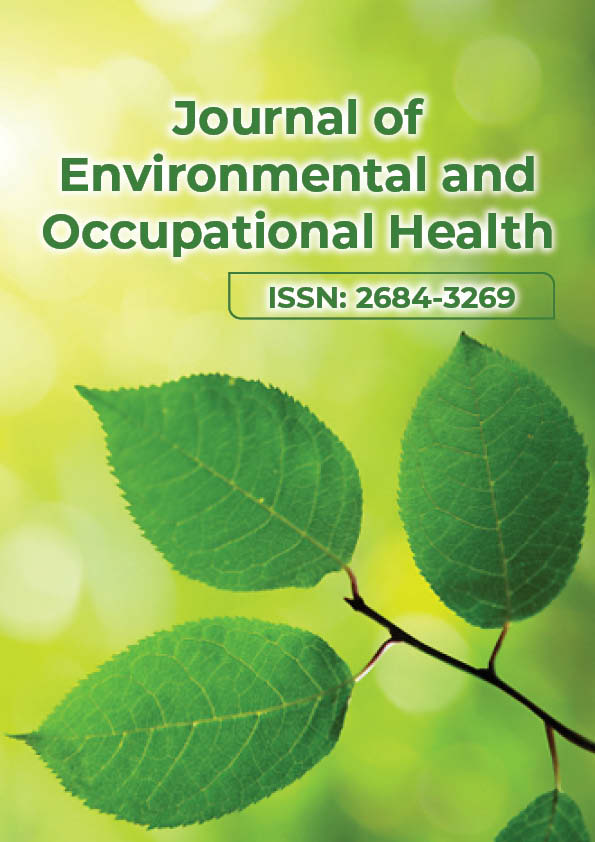Dietary exposure and health-risk assessment of toxic and essential metals in plantain from selected communities in Rivers State, Nigeria
Abstract
Kingsley Chukwuemeka Patrick-Iwuanyanwu, Nnaemeka Arinze Udowelle
Aim: This study was conducted to assess the levels of lead (Pb), cadmium (Cd), copper (Cu), iron (Fe), zinc (Zn), cobalt (Co), manganese (Mn), and magnesium (Mg) in plantain samples collected from 10 selected communities in Rivers State, aiming to estimate the potential health risk of heavy metal exposure. Materials and Methods: The samples were washed, oven-dried, and digested using a mixture of nitric acid and perchloric acid at a volume ratio of 4:1 at 150°C for 4 h. The samples were further analyzed using flame atomic absorption spectrometer. Results: The concentration (mg/kg) range in decreasing order was Mg (285-525) >Fe (60-345) >Cu (56.9-74.8) >Zn (5.48-96.0) >Mn (0.48-5.23) >Pb (0.78-2.0) >Co (0.23-1.28) >Cd (0.16-0.72). The results from the study exceeded the permissible limit set by WHO/FAO. A wide range of variation was observed in the estimated daily intake (EDI) of metals when compared with the tolerable daily intake of different regulatory bodies. The calculated EDI values for Pb, Cd, Cu, Fe, Zn, Mn, Co and Mg in samples from communities under study were highest in Etche, Nkpolu, Emohua, Emohua, Eleme, Eleme, Nkpolu, and Rumuosi, respectively. Target hazard quotient (THQ) values >1 were recorded in some samples unZder study indicating a health risk, whereas the hazard index (HI) for plantain samples from all the communities under study was found to be >1. The average lifetime carcinogenic risk of Pb and Cd through the consumption of plantain from selected communities in Rivers State ranged between 2.9E-05 – 5.6E-05 and 2.2E-04 – 9.1E04 for Pb and Cd, respectively. Conclusion: The overall study suggests that frequent consumption of plantain from these selected communities may cause a potential health risk to the exposed population.
PDF




